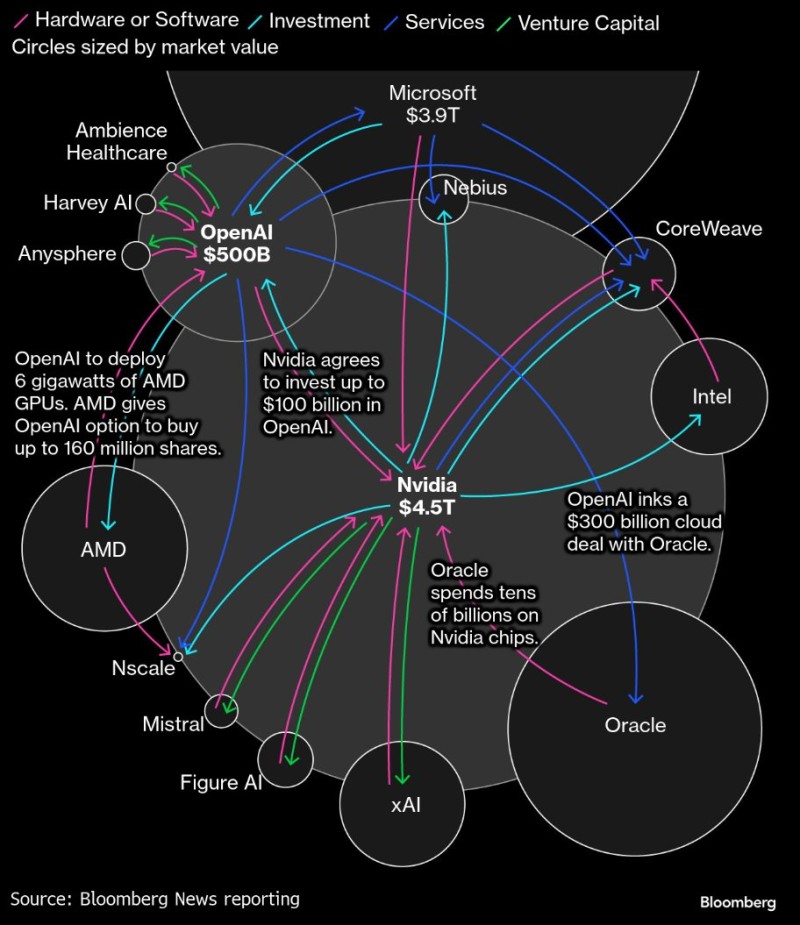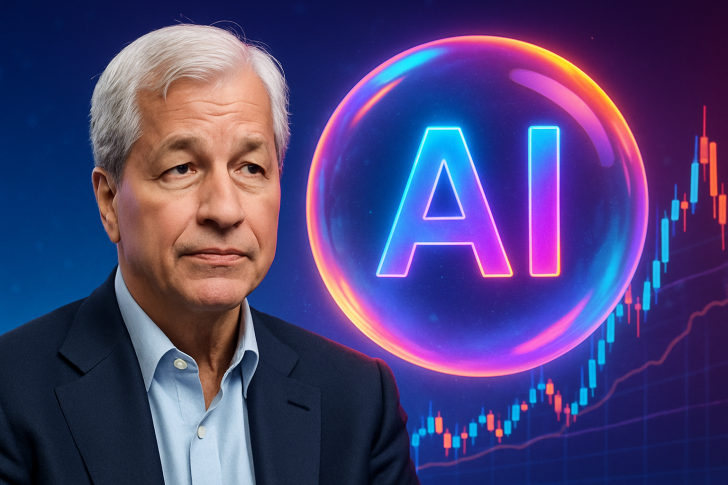⬤ JPMorgan CEO Jamie Dimon recently cautioned that many assets are entering bubble territory, with Bank of America's Global Fund Manager Survey identifying an AI equity bubble as the number one global tail risk for the first time. Cash allocations have dropped to 3.8%, nearing BofA's historical sell signal and indicating investors are taking maximum risk late in the market cycle.

⬤ The overheated environment coincides with discussions about potential AI-related tax changes being considered in multiple countries. Proposals include higher taxes on compute infrastructure, data centers, and AI-driven productivity gains. These measures could particularly hurt rapidly scaling AI companies with tight margins, potentially triggering bankruptcies among smaller players and pushing talent toward more favorable regulatory environments. Policymakers worry that excessive investment combined with weak cash flow models could amplify systemic risks if valuations suddenly correct.
⬤ The gap between market optimism and business fundamentals keeps widening. Google just announced a $15 billion data center investment in India, while OpenAI plans around $1.5 trillion in AI infrastructure spending despite generating only $13 billion annually with no profits. Professional fund managers show their highest bullishness of the year, increasing risk positions for five straight months. However, sector correlations have fallen to their lowest point since the bull market started, a pattern that historically signals market pullbacks when overconfident investors stop hedging.
⬤ Dimon's warning doesn't mean markets can't keep climbing. Bubbles often last longer than expected in late-cycle phases, but every additional dollar of gains means a harder fall when confidence finally breaks. This landscape of massive AI spending, minimal cash reserves, and collapsing correlations reveals growing vulnerability. For investors, the flood of AI capital and stretched valuations suggest momentum is driving prices more than fundamentals, making the next sentiment shift potentially dramatic.
 Usman Salis
Usman Salis

 Usman Salis
Usman Salis


